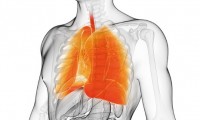-
New UCL-developed immunotherapy shows promising results in treating bone cancer
- Source: drugdu
- 71
- June 5, 2024
-
HS and NICE announce plan to adopt innovative medical technologies for patients
- Source: drugdu
- 78
- June 1, 2024
-
UK lung cancer study demonstrates further evidence on importance of CT screening
- Source: drugdu
- 84
- May 24, 2024
-
NIHR awards HealthTech Research Centre Network £5m to advance health innovations
- Source: drugdu
- 70
- May 23, 2024
-
NIHR and TJBCM announce new funding initiative for novel brain tumour research
- Source: drugdu
- 92
- May 17, 2024
-
MHRA’s AI Airlock to address challenges for regulating AI medical devices
- Source: drugdu
- 116
- May 15, 2024
-
International phase 3 clinical trial for new melanoma treatment recruits first patients
- Source: drugdu
- 119
- May 9, 2024
-
Nestlé India and Dr Reddy’s announces joint venture
- Source: drugdu
- 116
- April 29, 2024
-
New clinical trial aims to investigate skin patches to spot lung transplant rejection
- Source: drugdu
- 77
- April 24, 2024
-
New UK report highlights inequalities among people living with breast cancer
- Source: drugdu
- 83
- April 23, 2024
your submission has already been received.
OK
Subscribe
Please enter a valid Email address!
Submit
The most relevant industry news & insight will be sent to you every two weeks.













